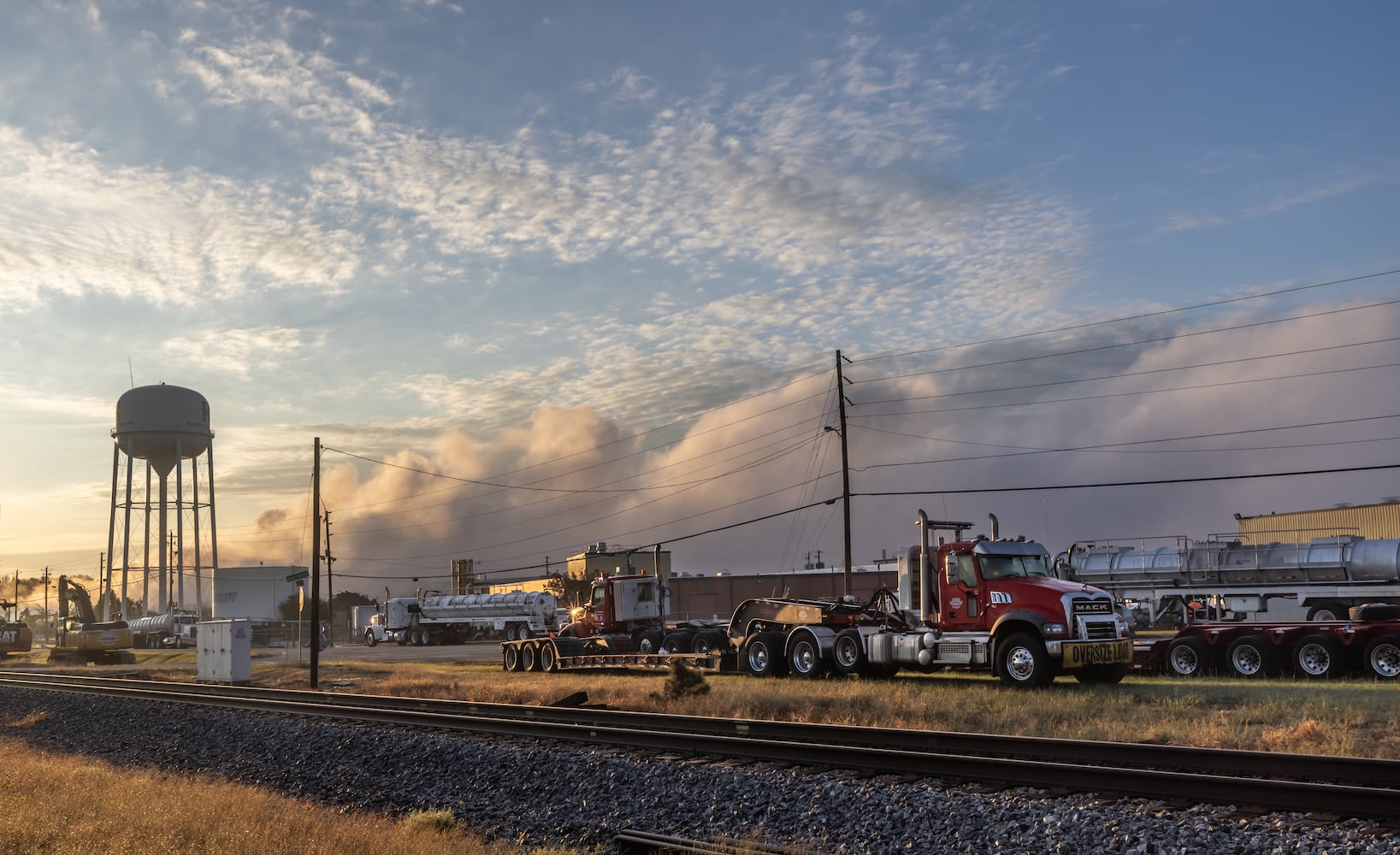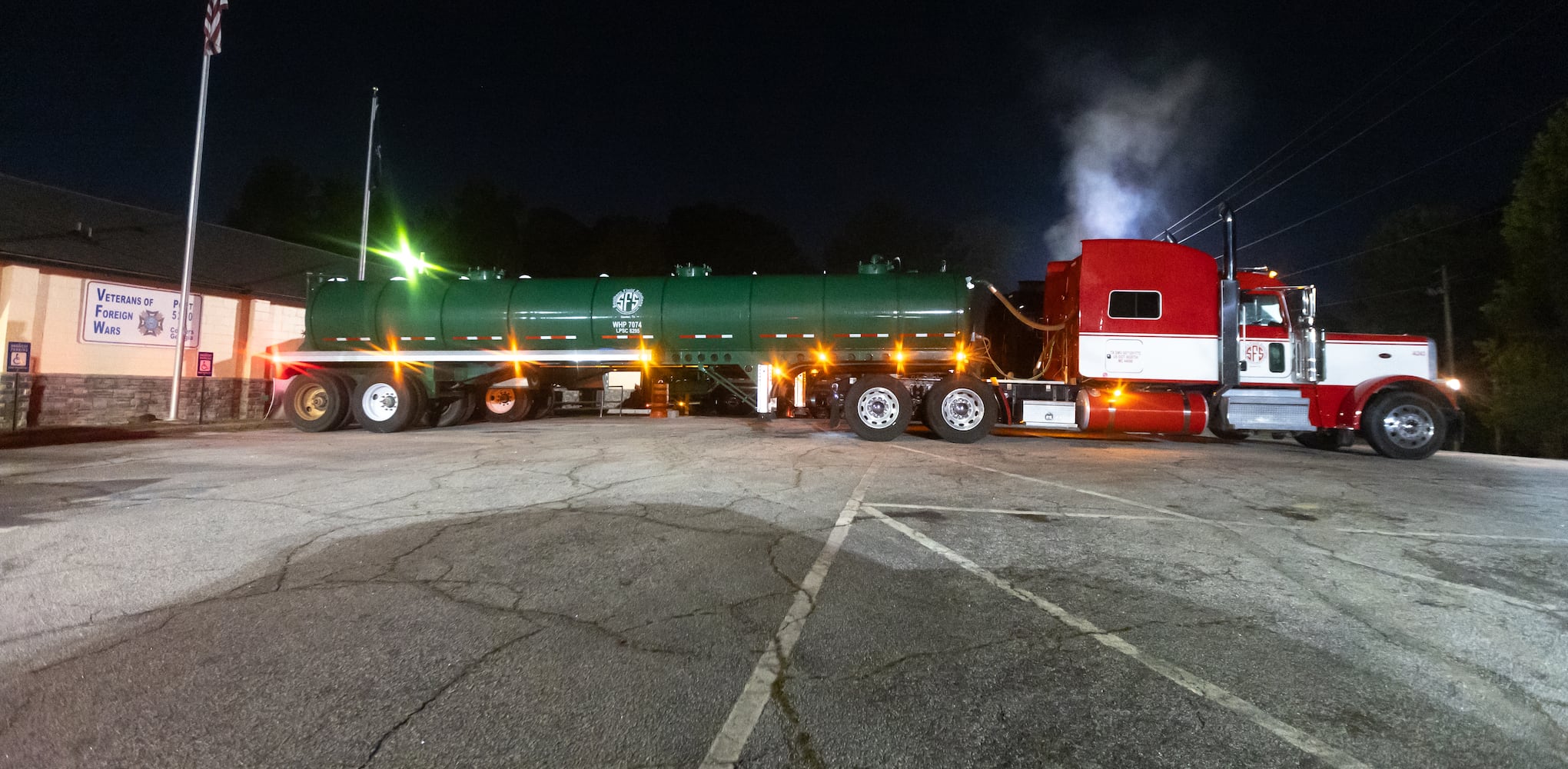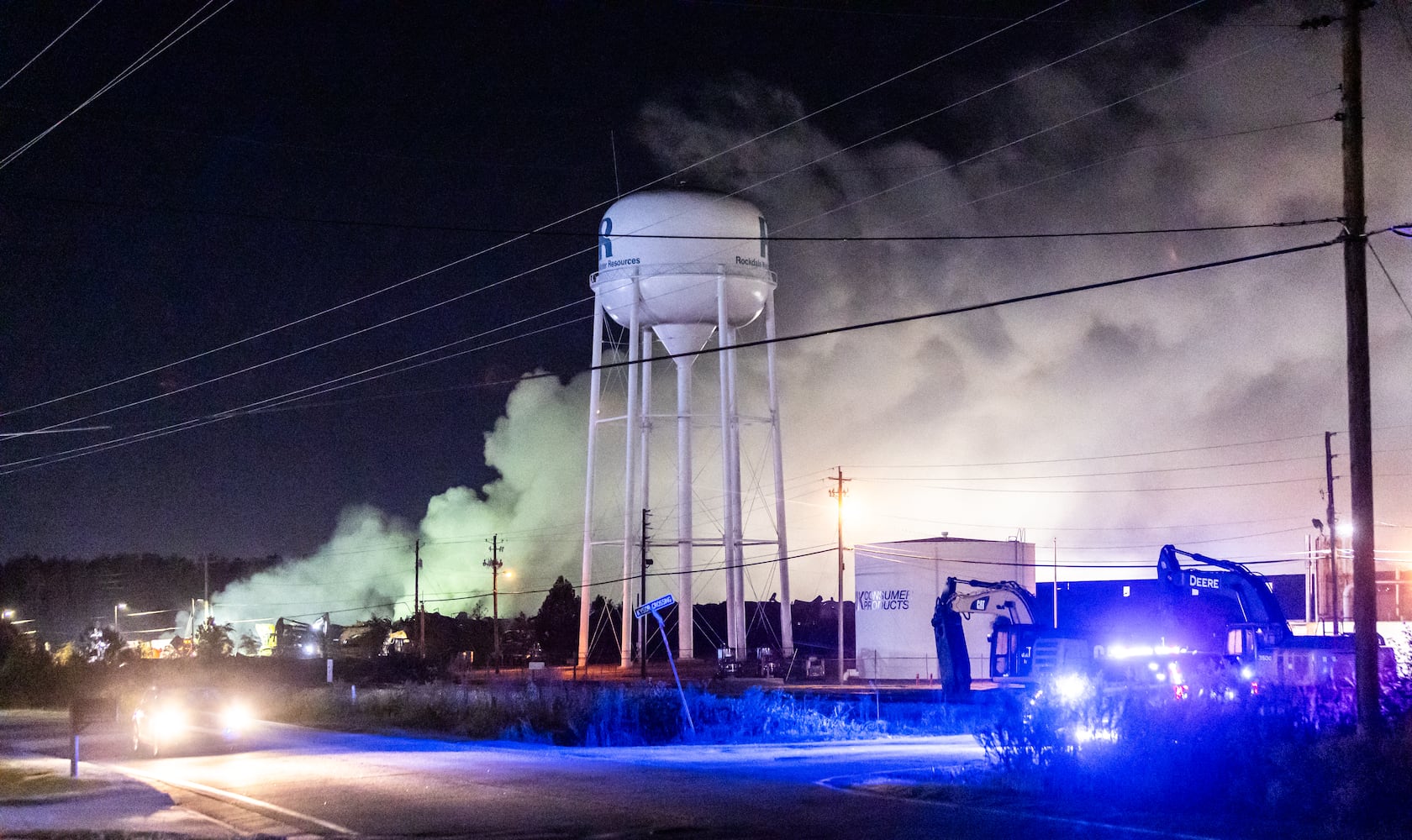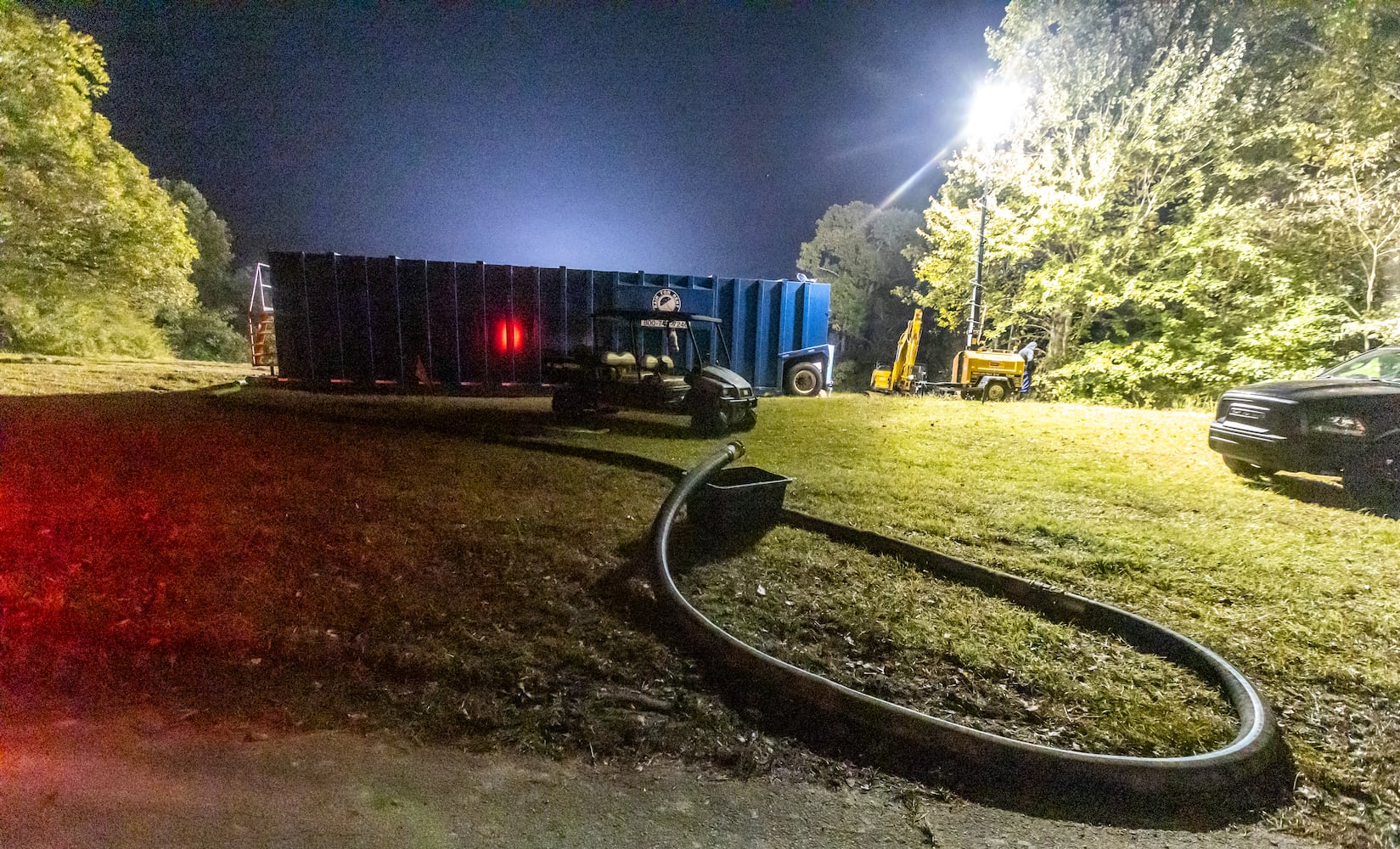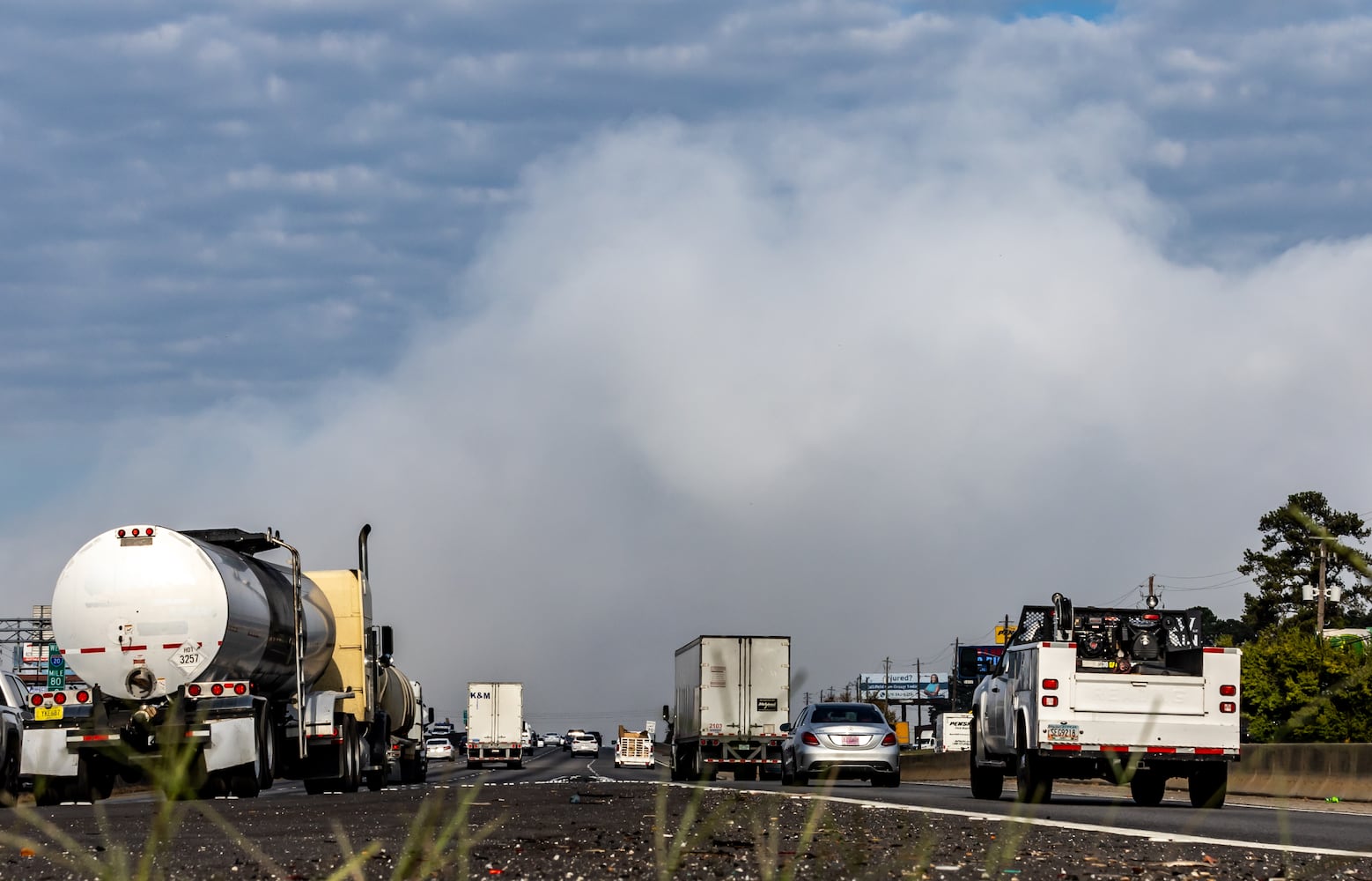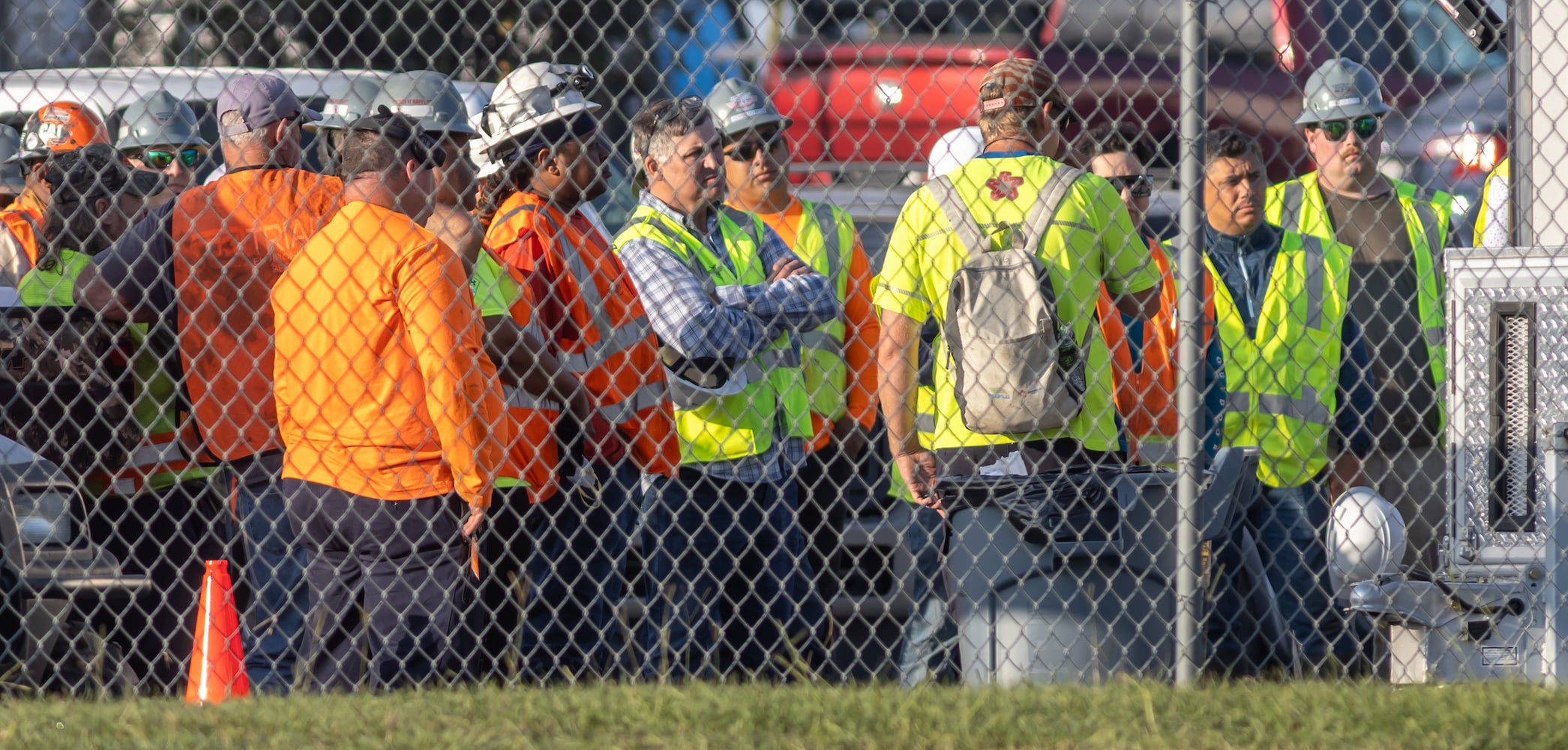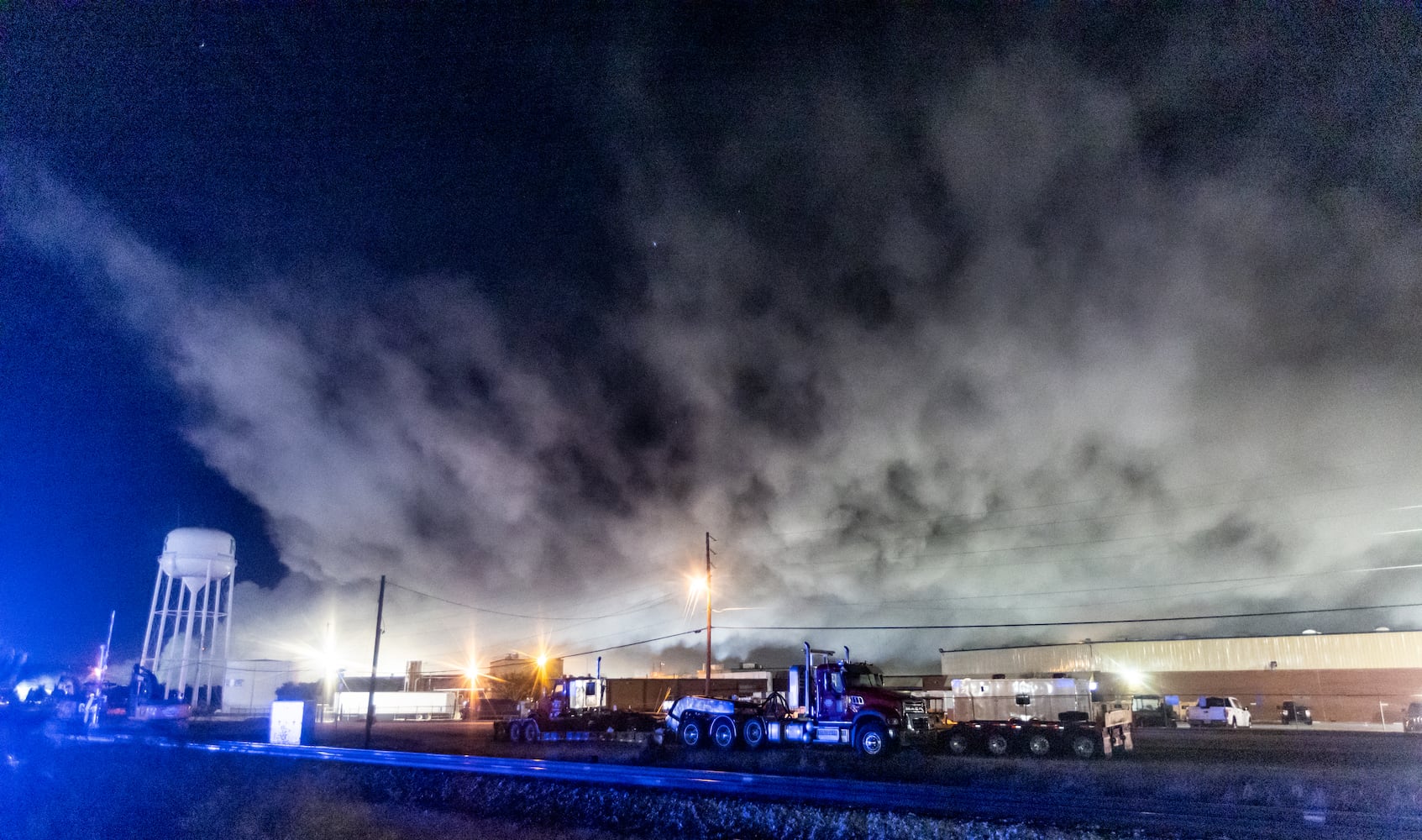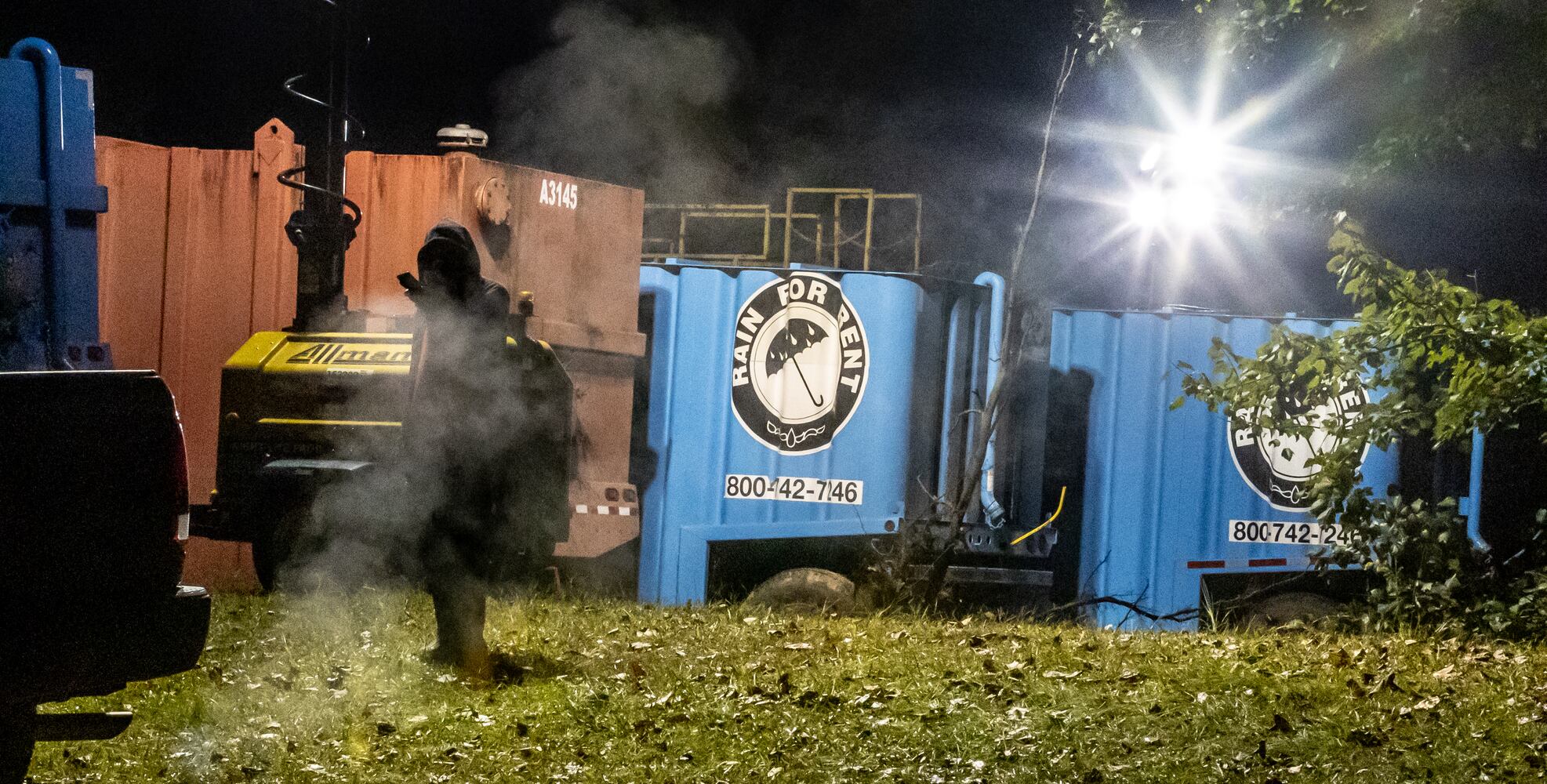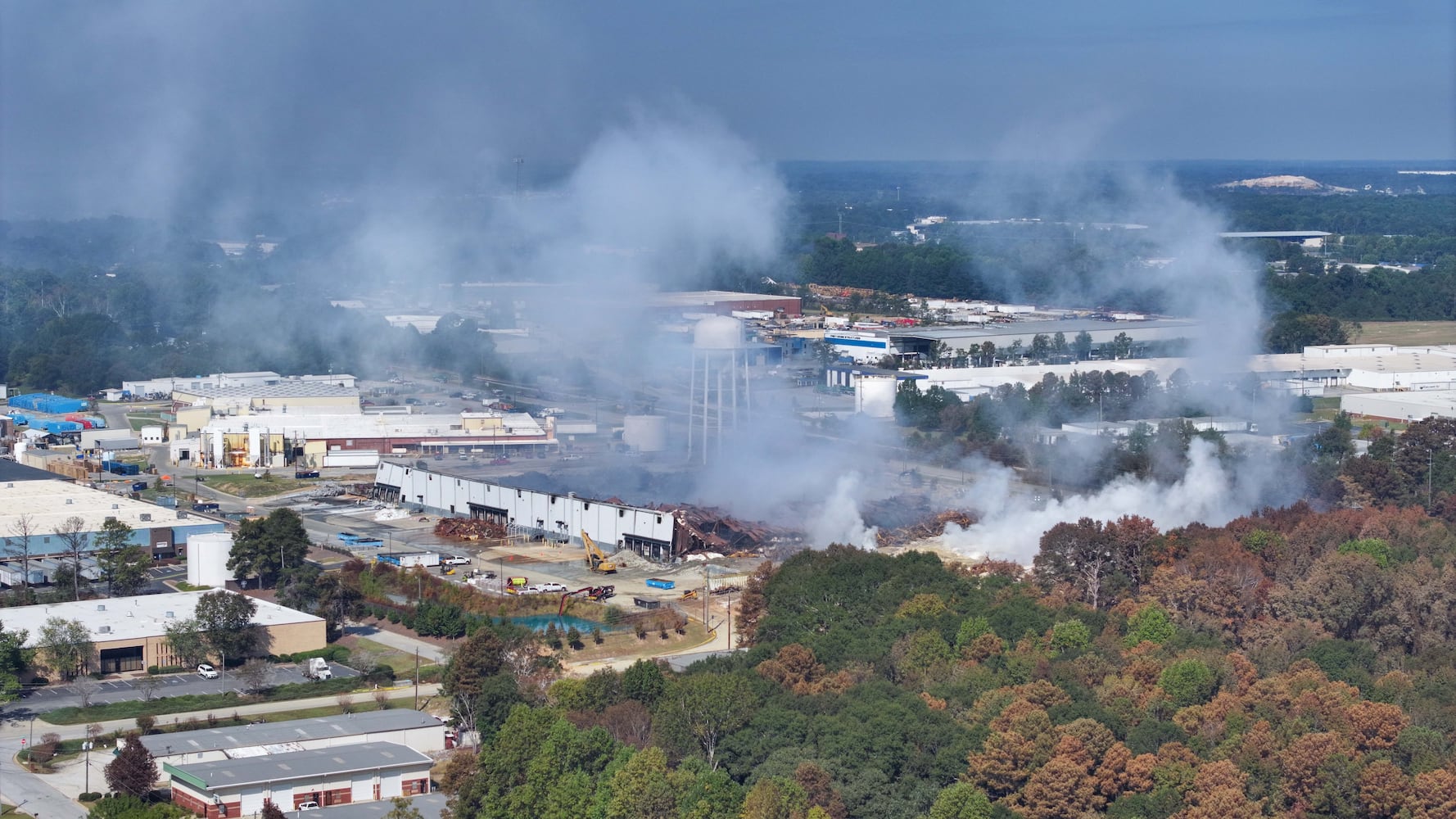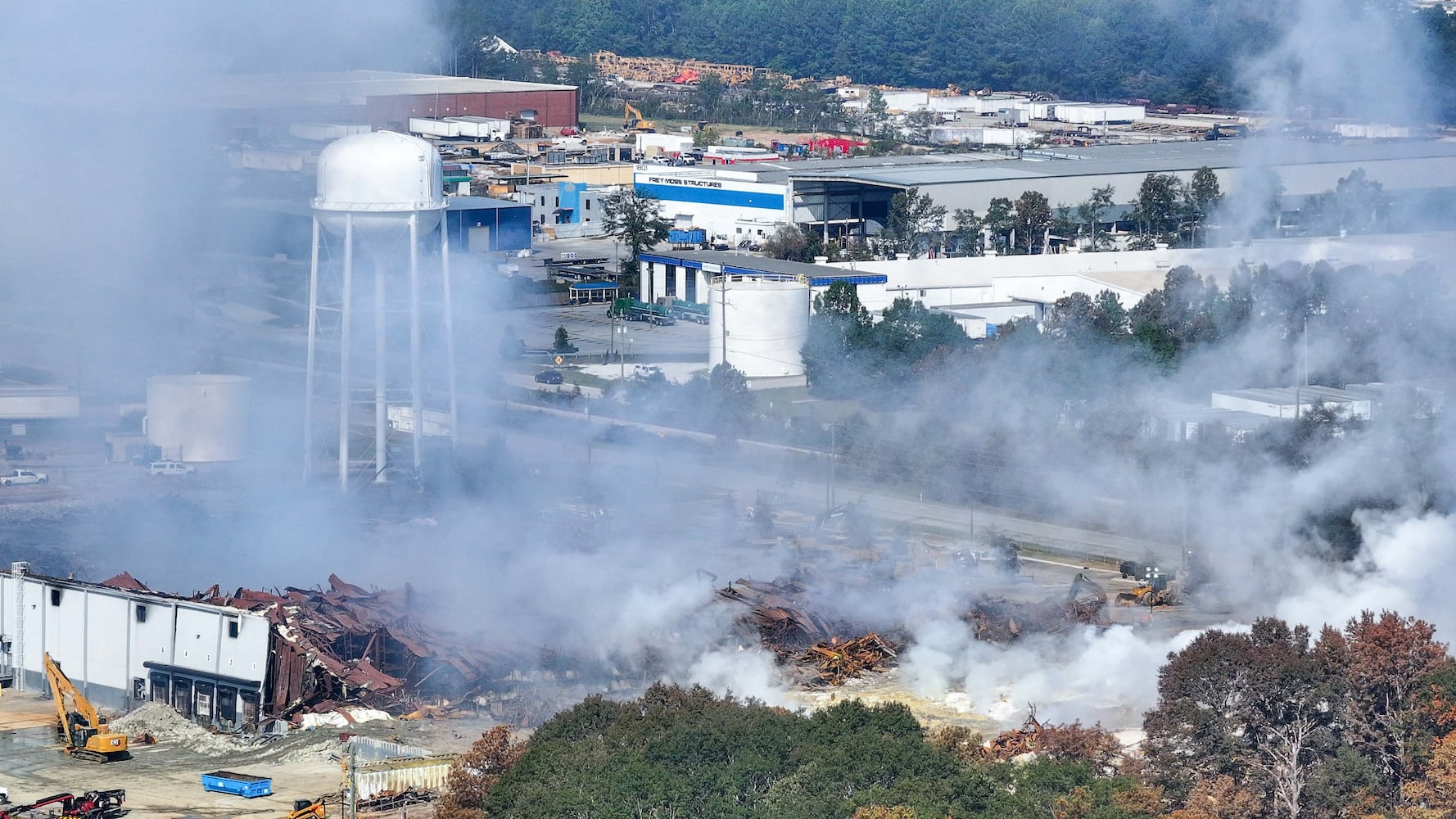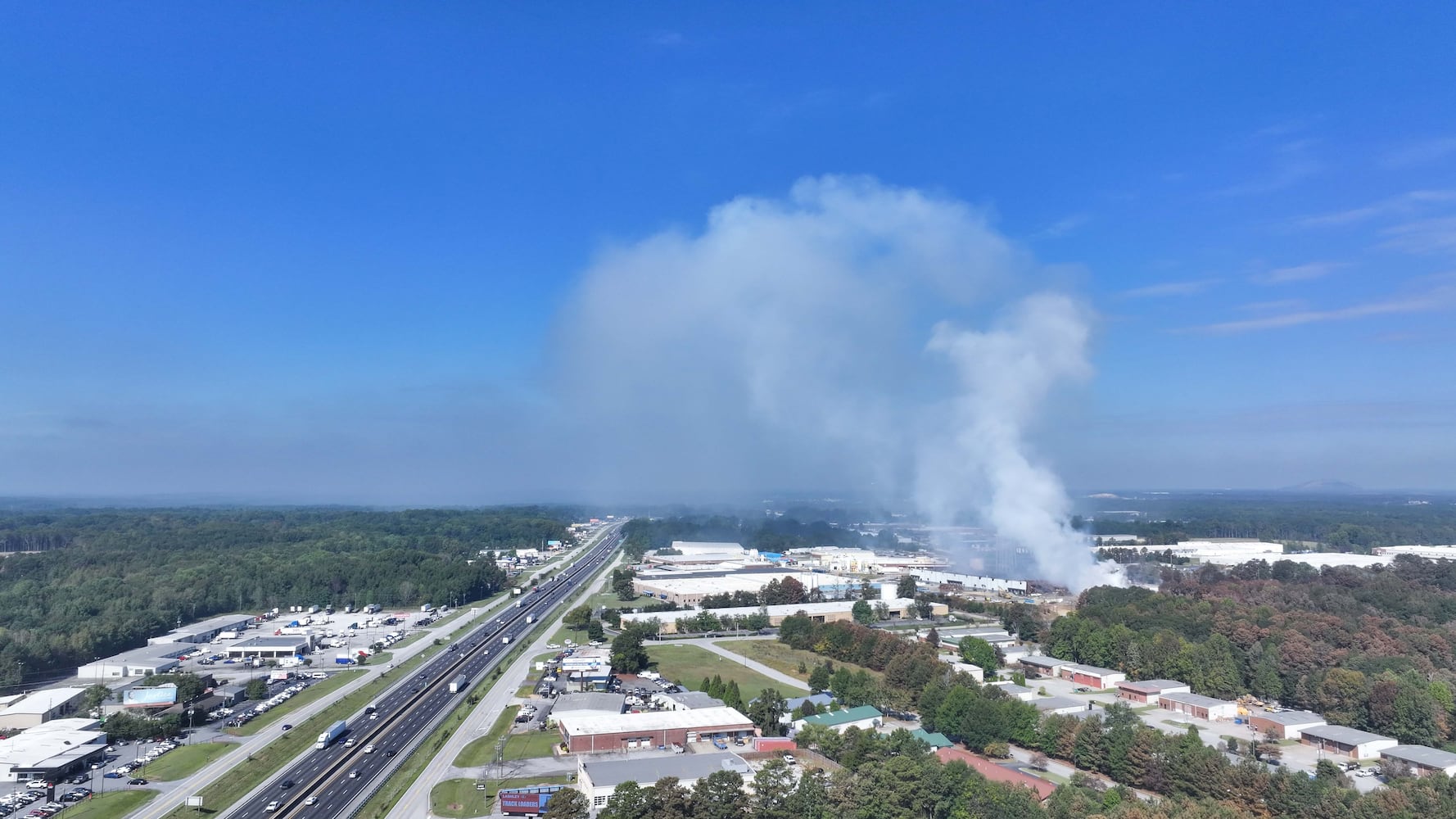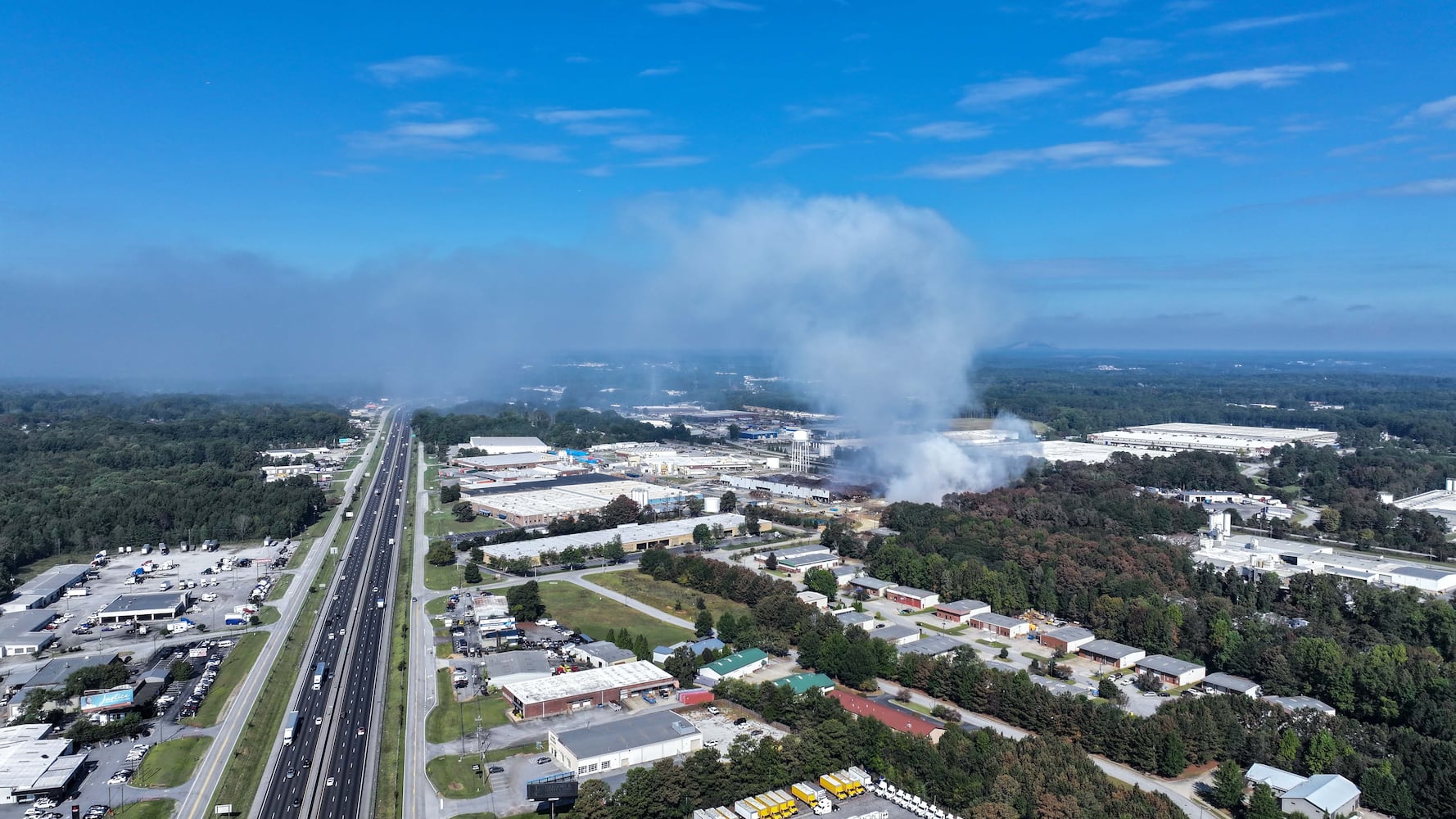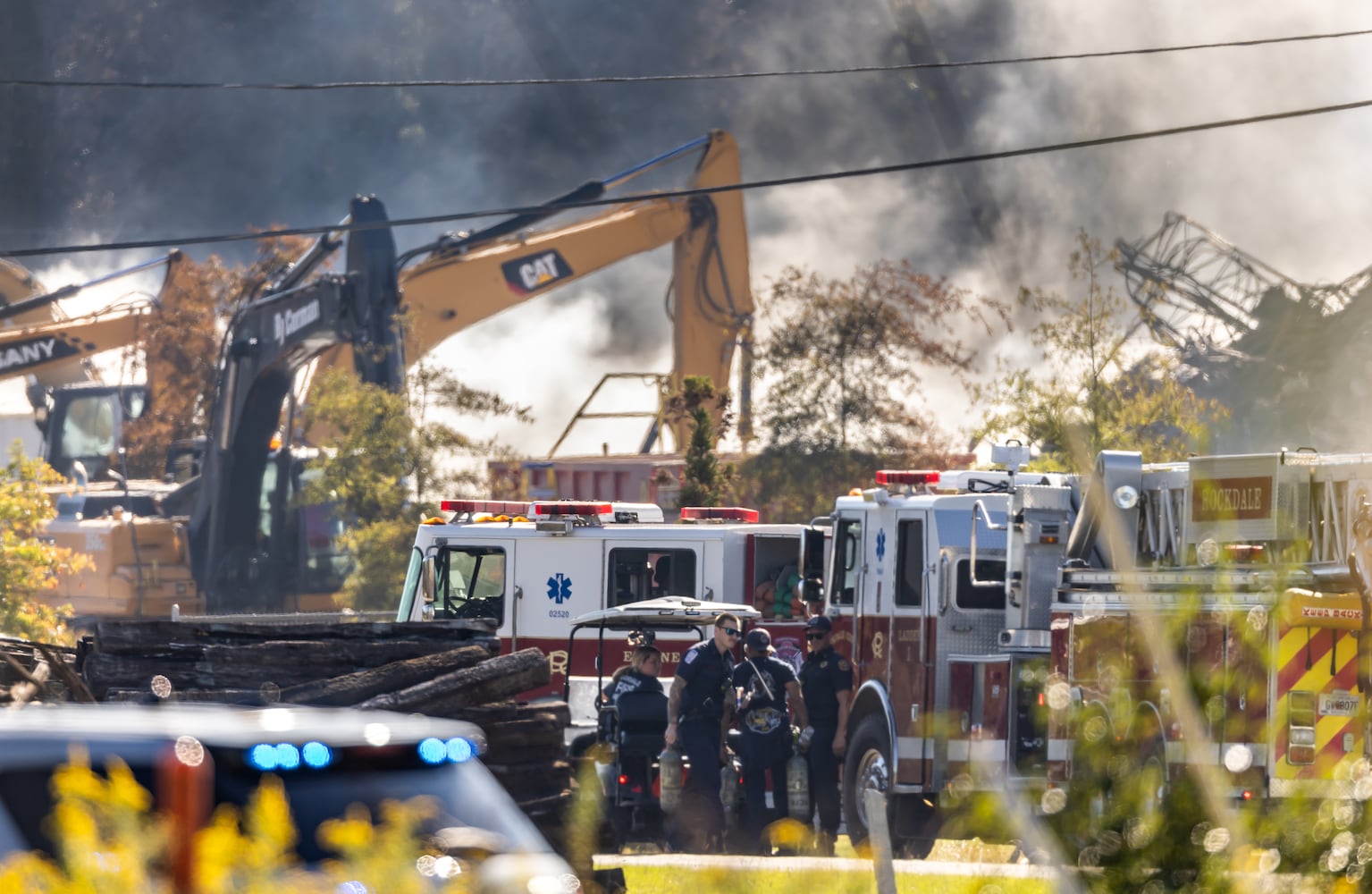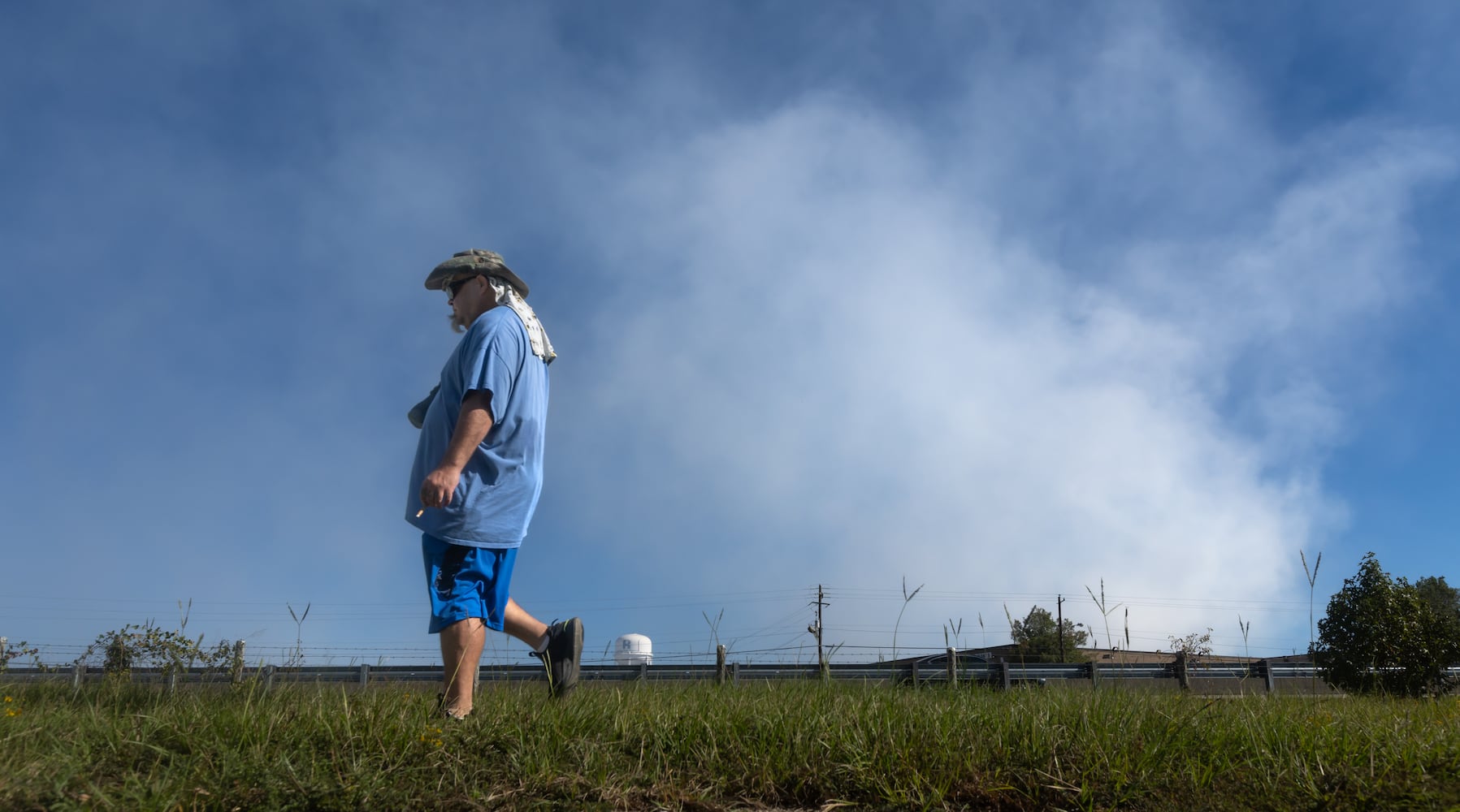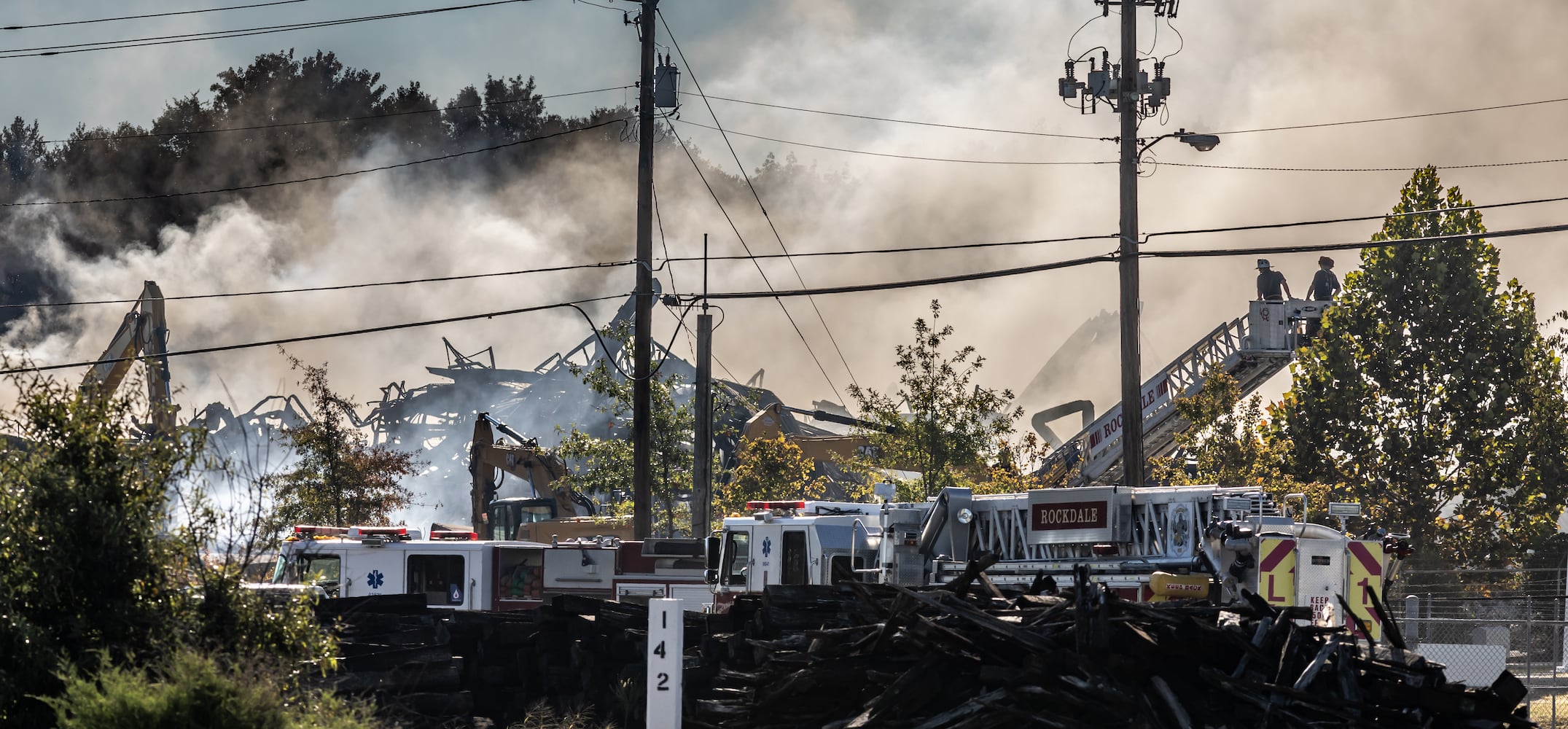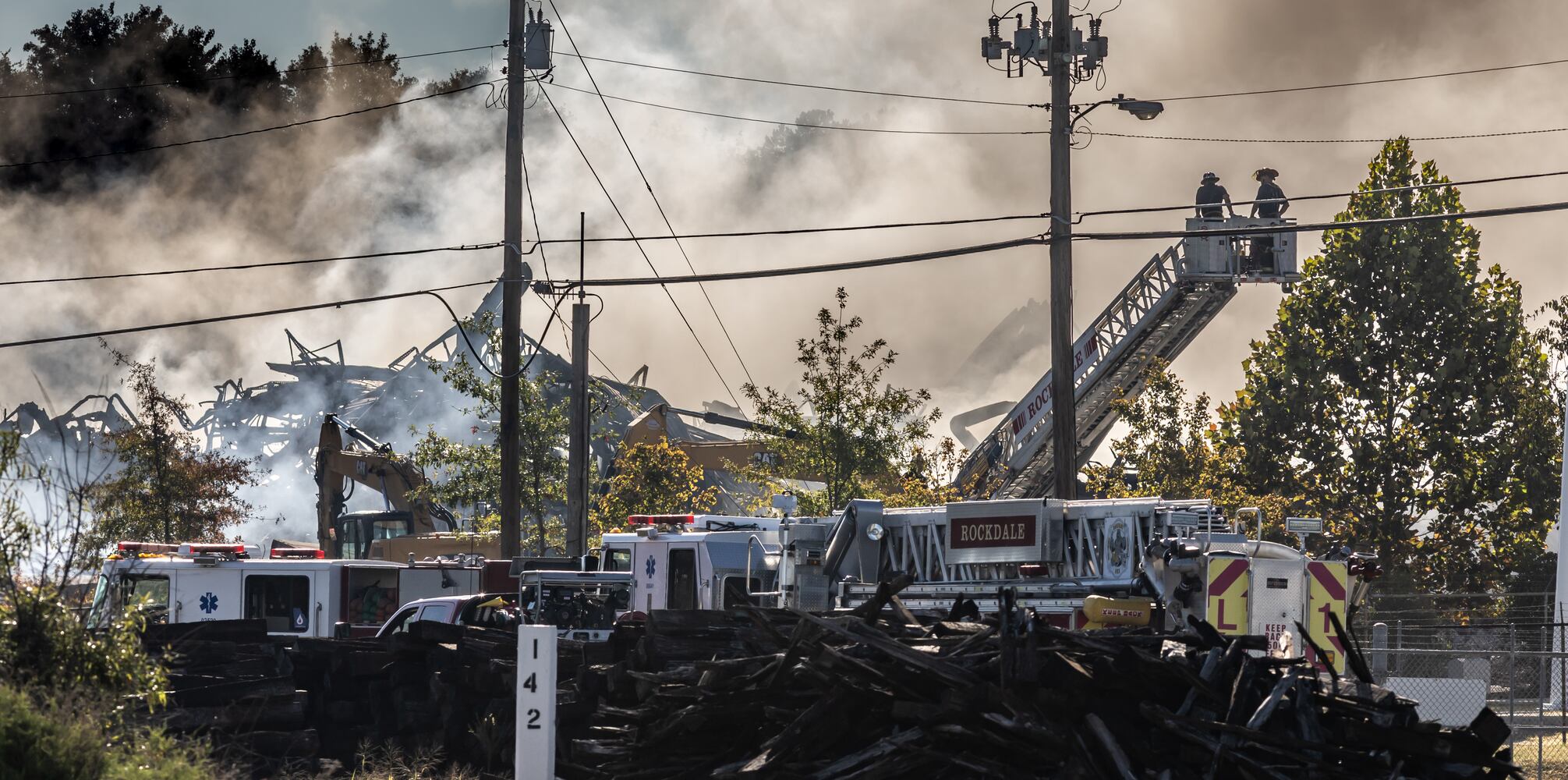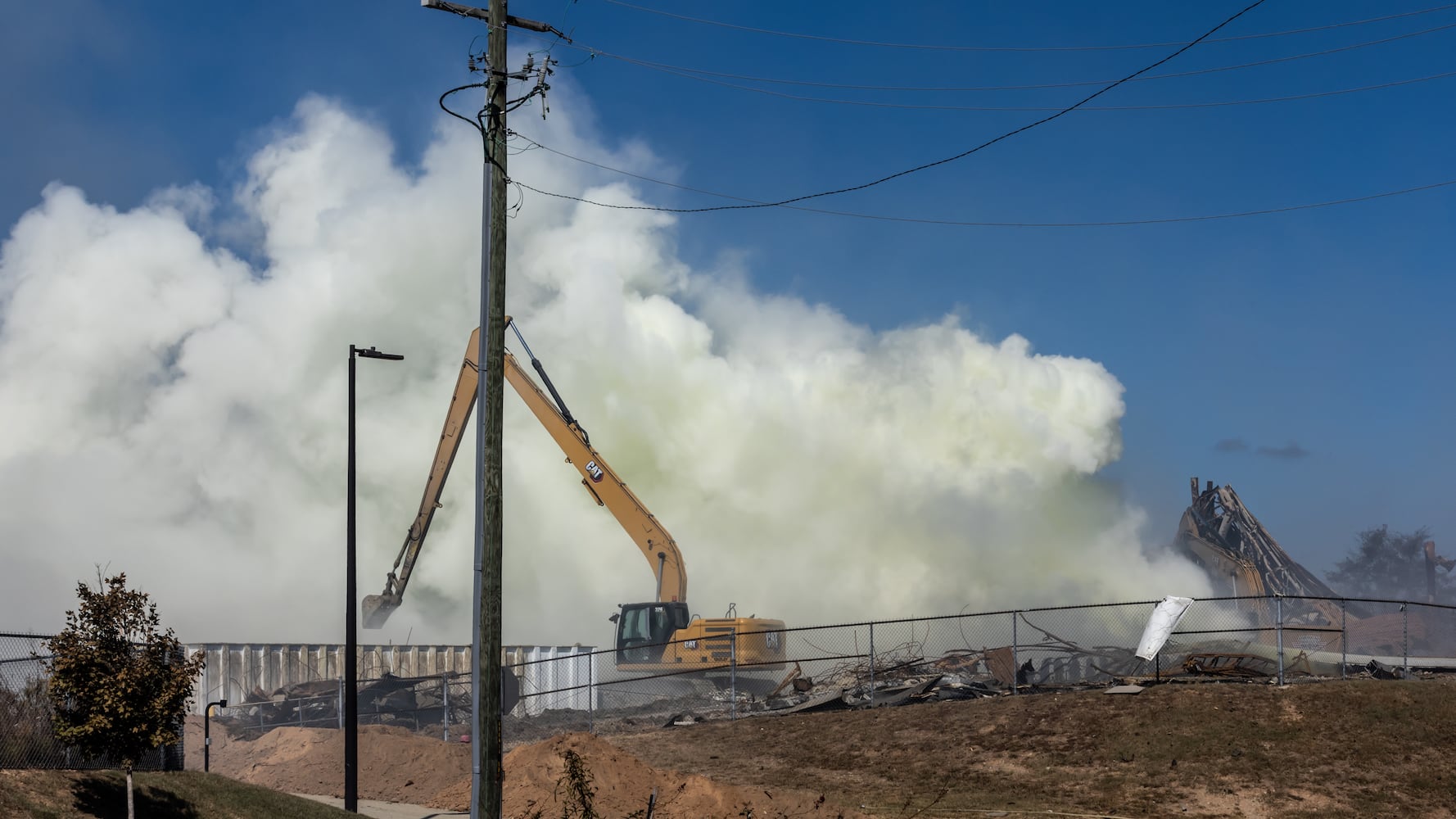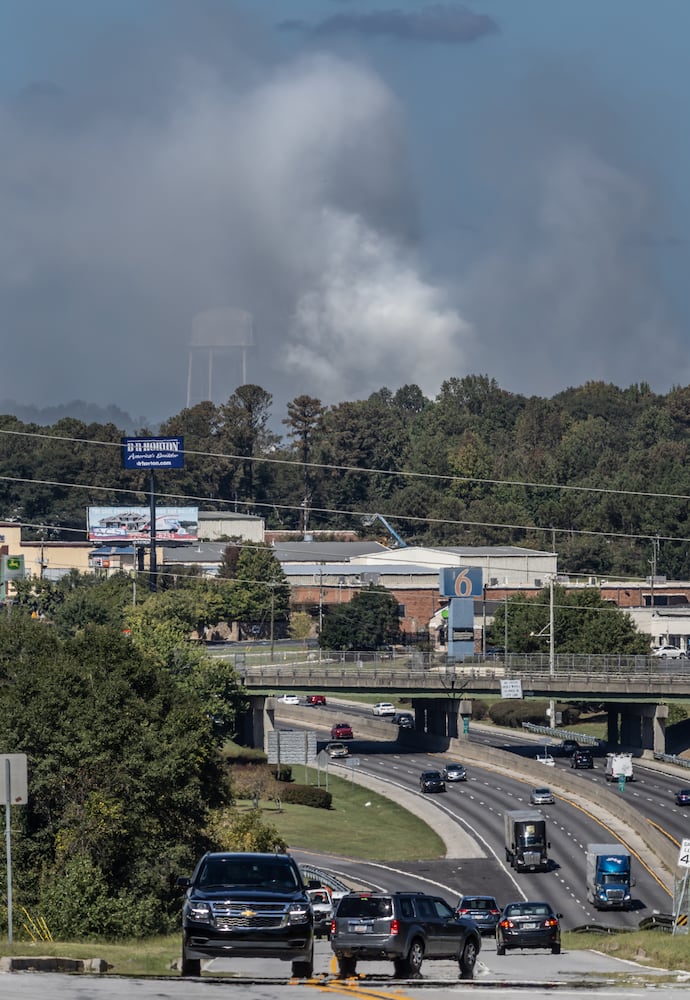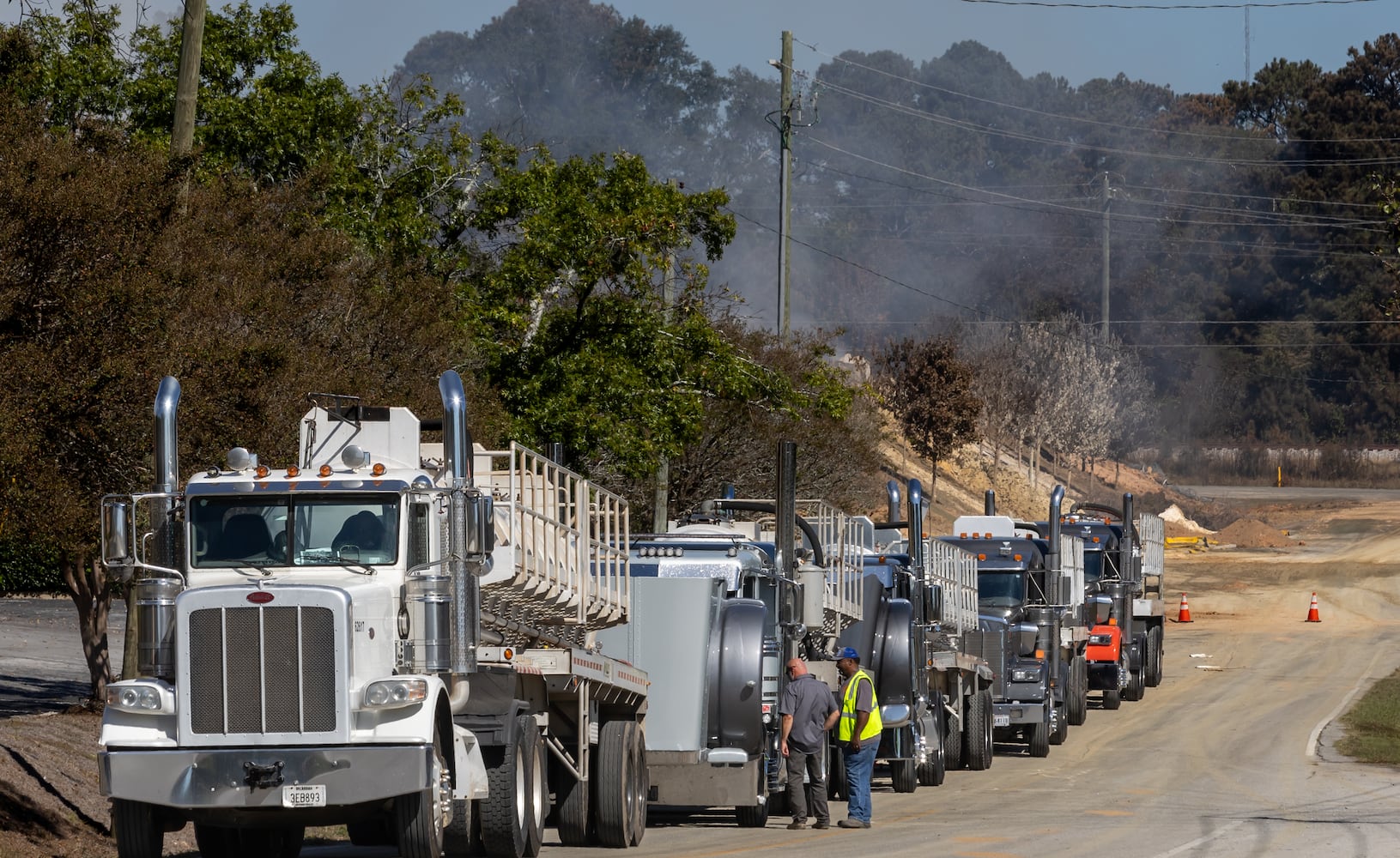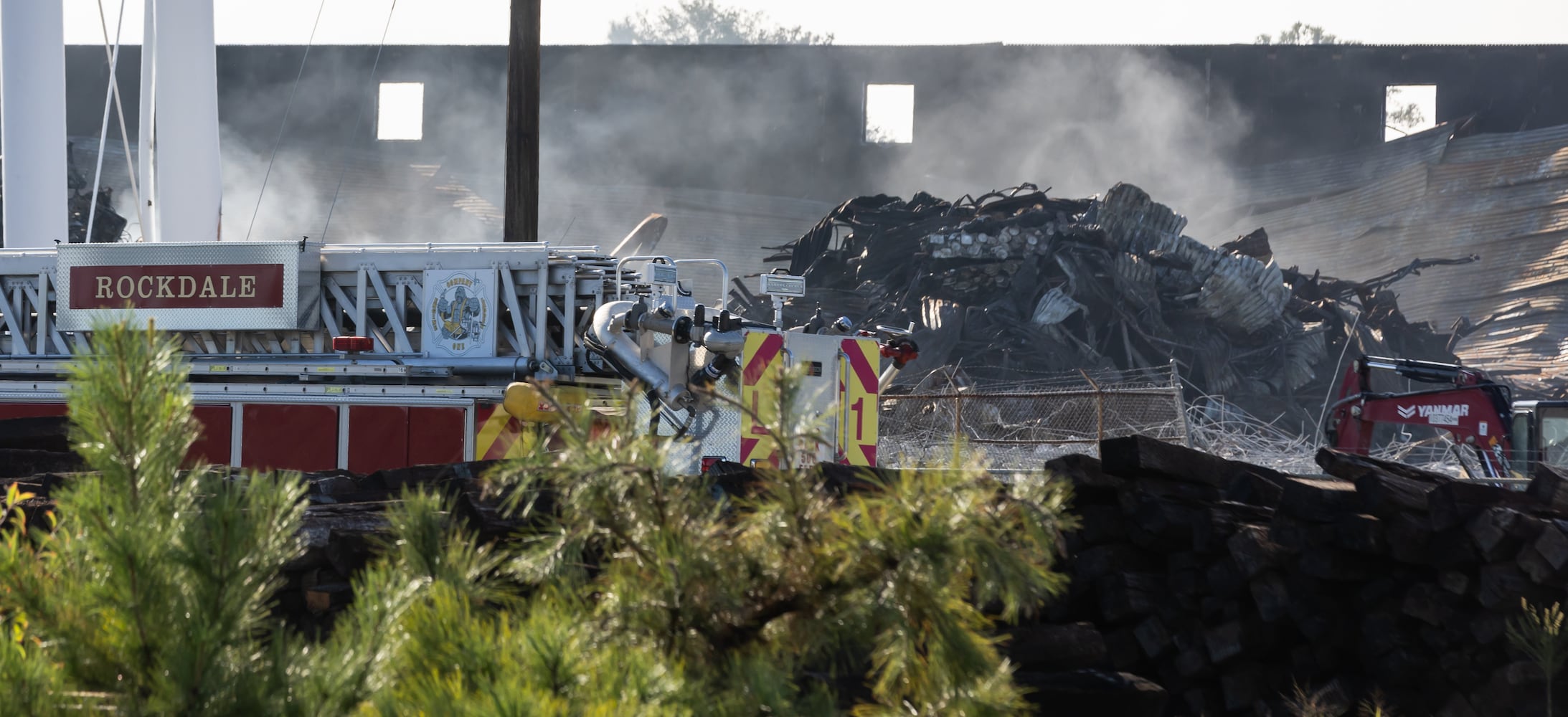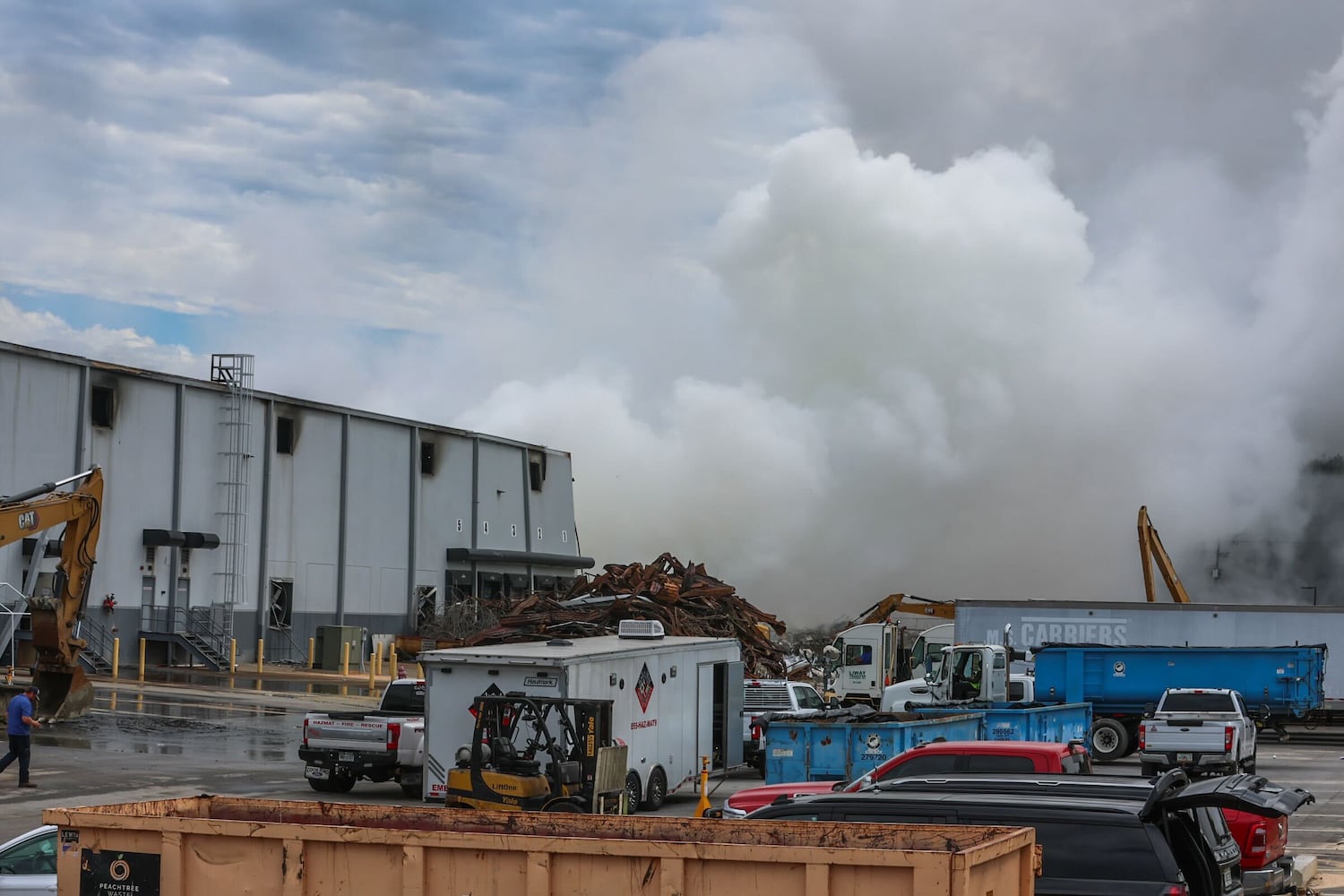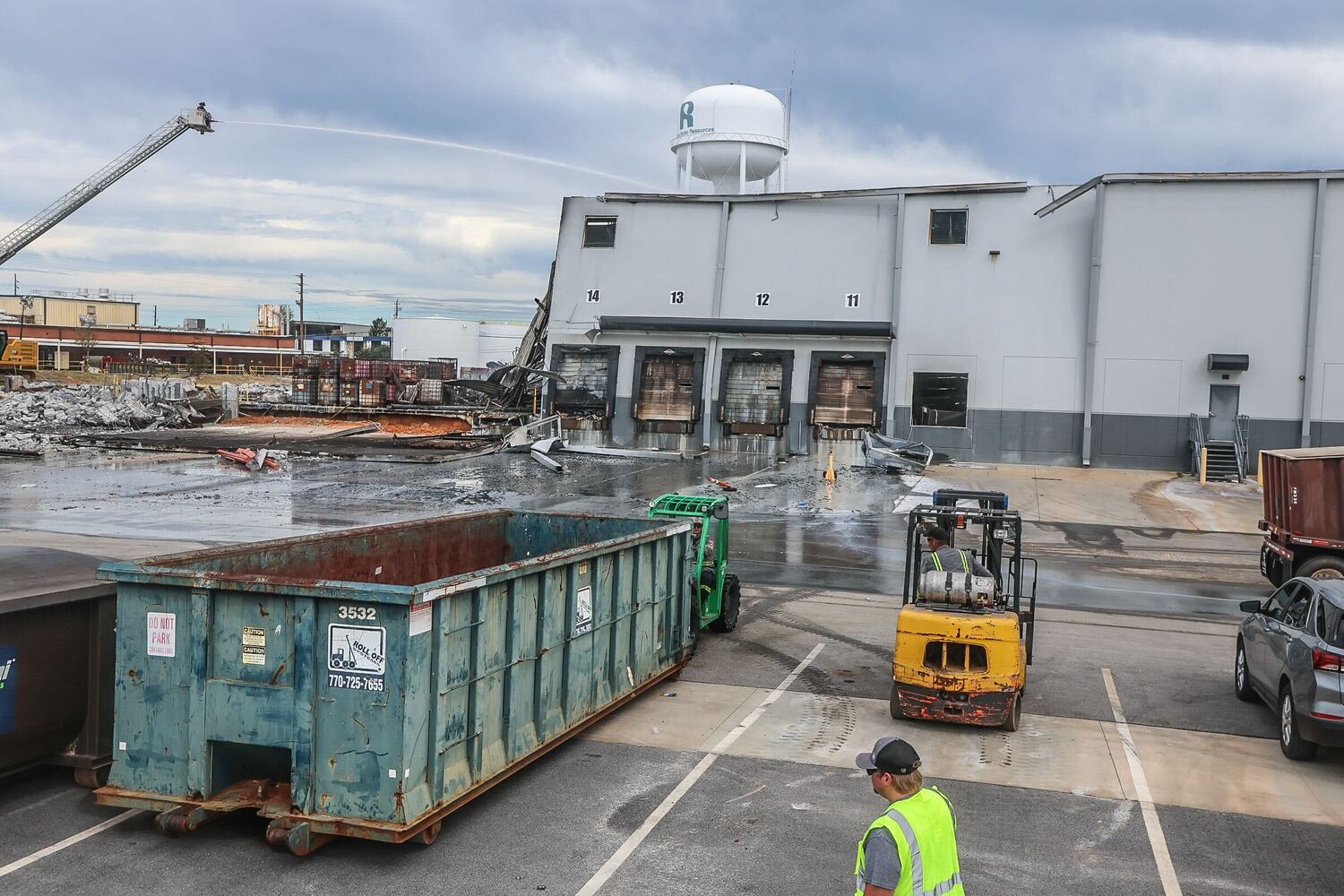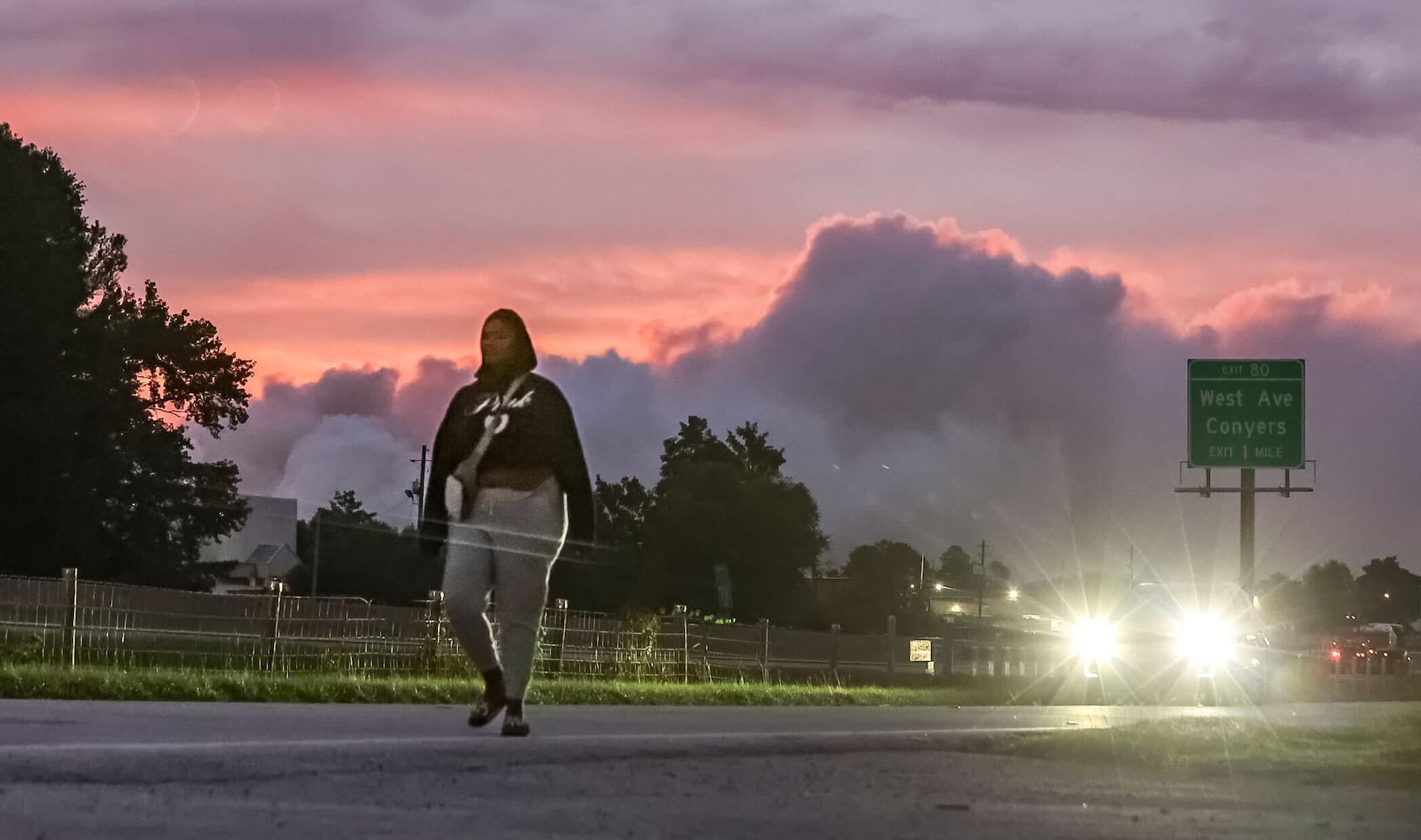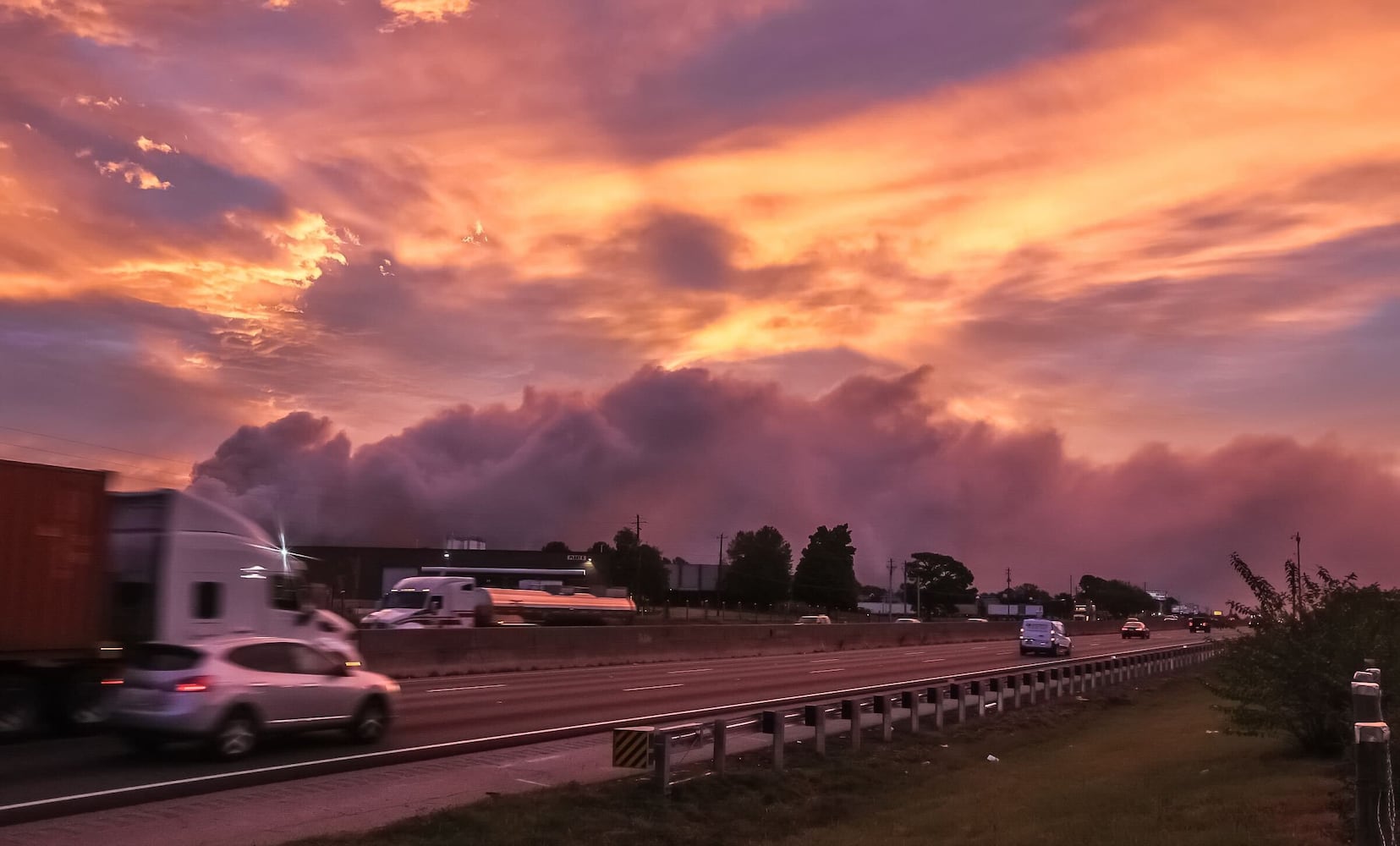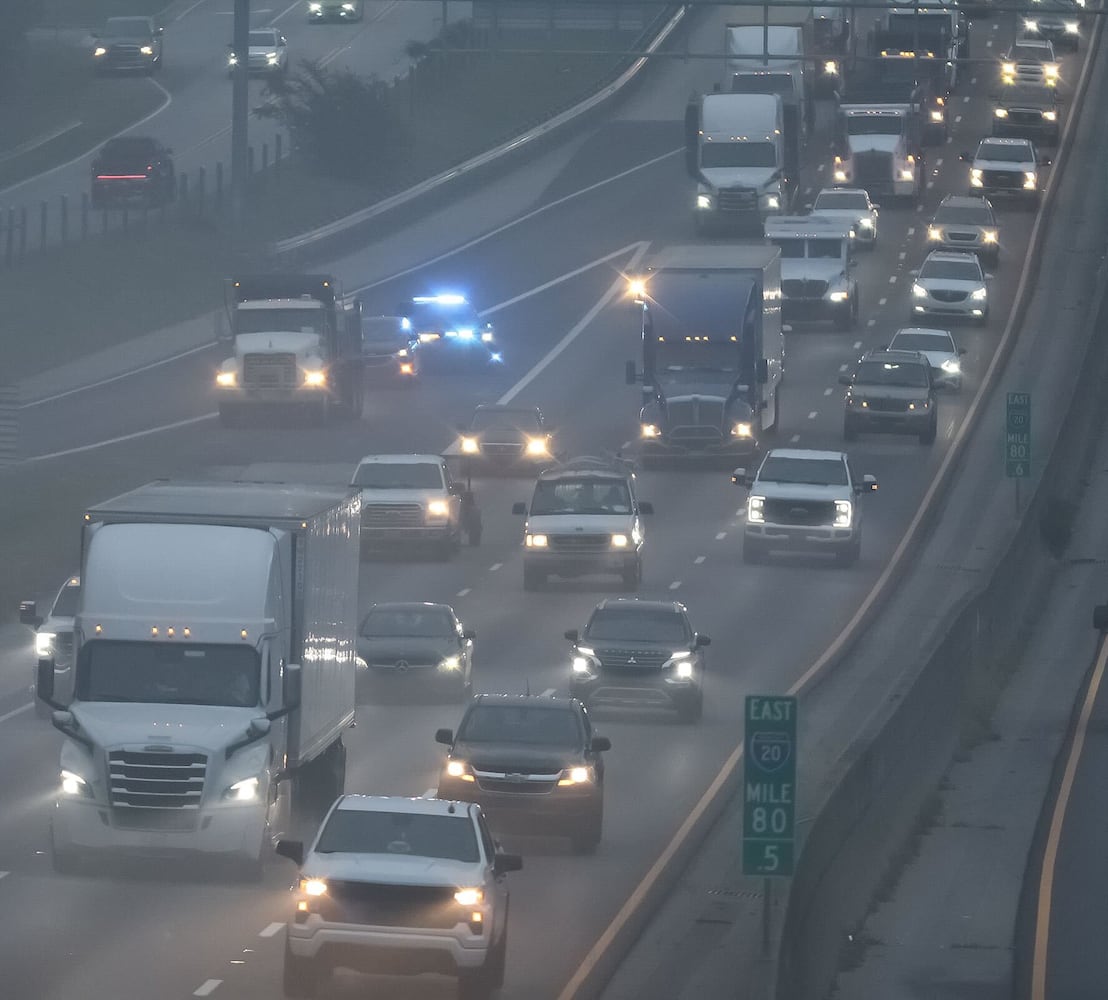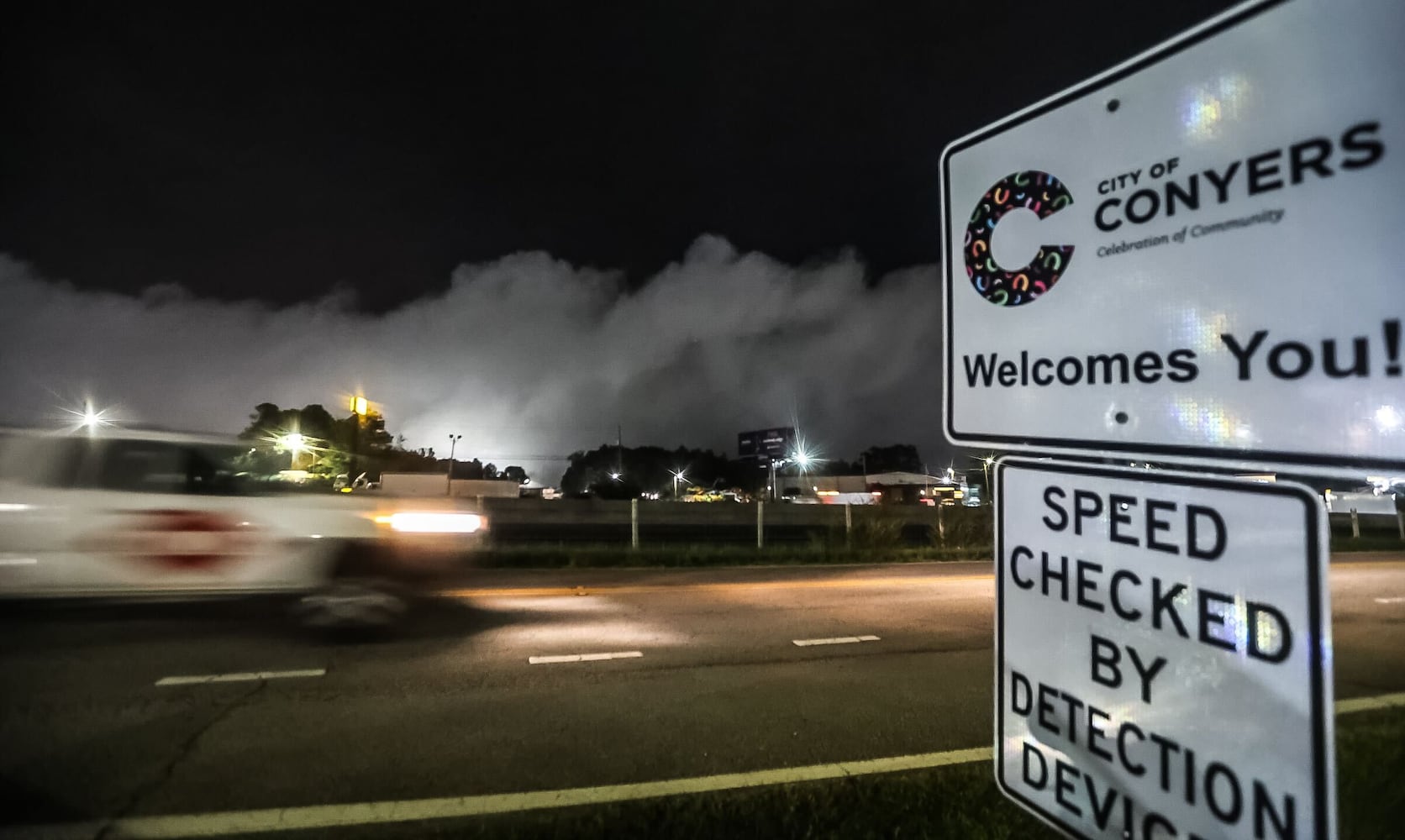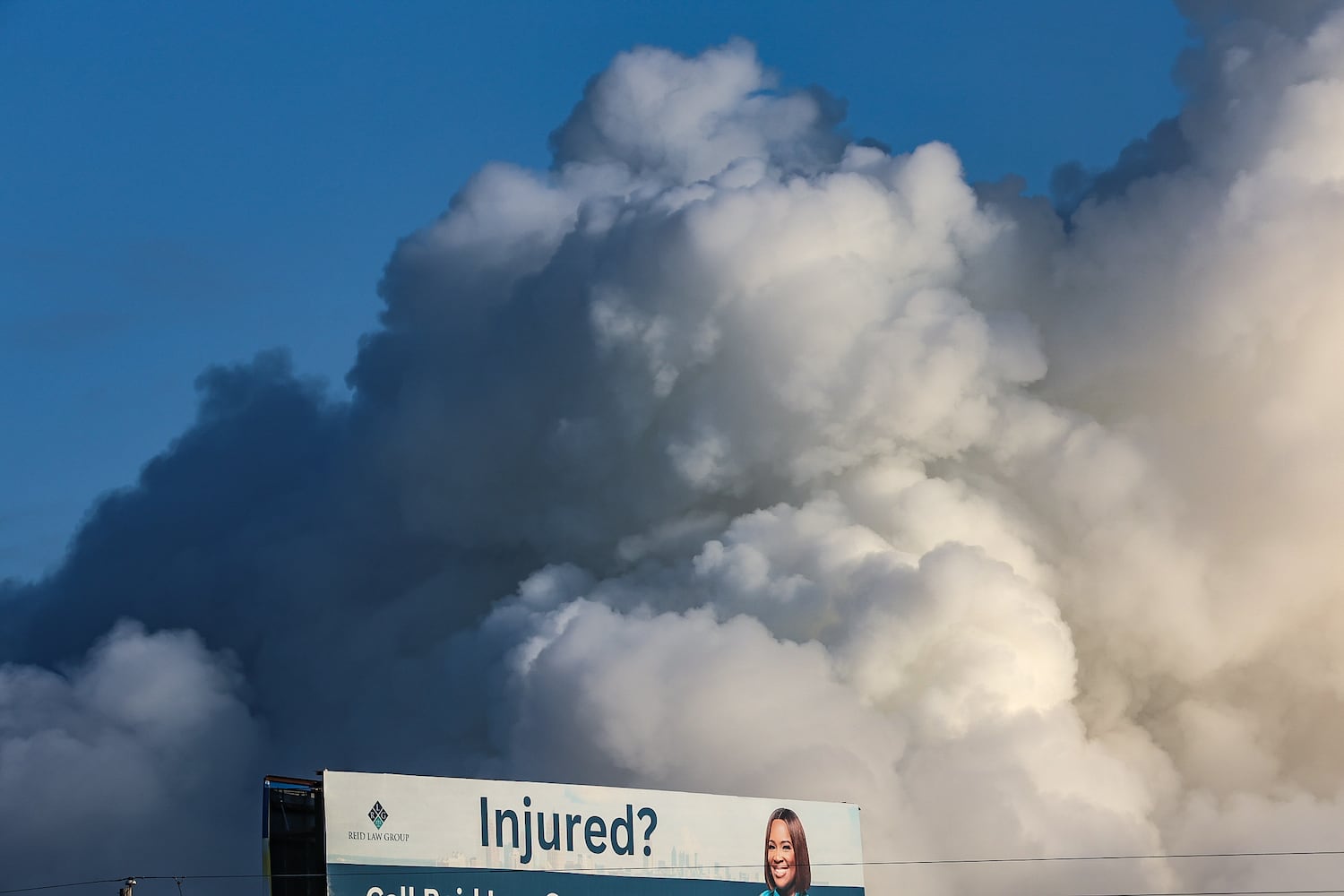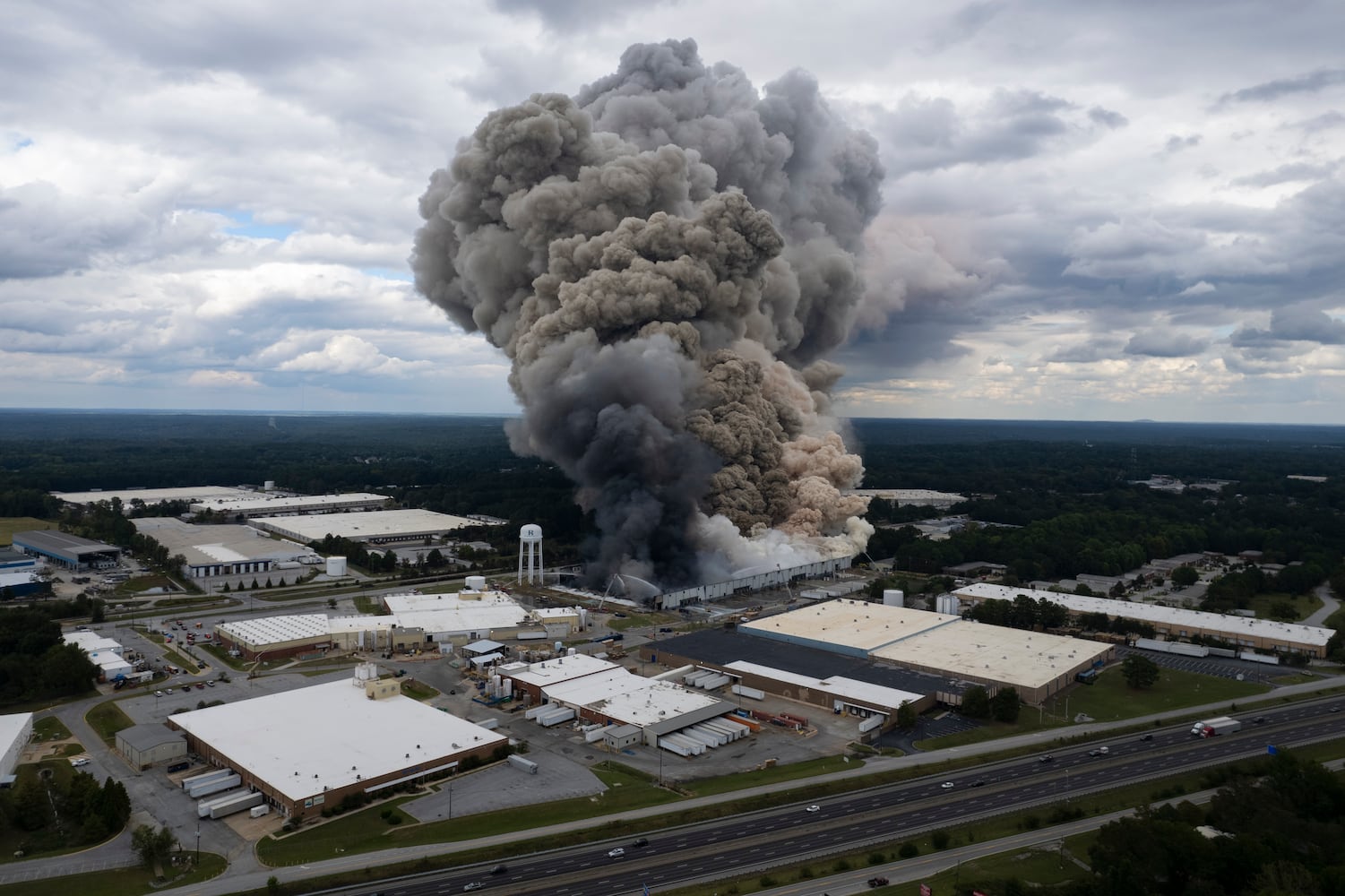When Atlantans venture out of their homes for the first time Thursday morning, they could be greeted by that white plume of chemical smoke they’ve heard about all week.
Some city residents might have even smelled the chlorine in the air that has gripped Rockdale County about 25 miles to the east. Now, officials warn the plume will be coming west.
“There is a high likelihood that people across metro Atlanta will wake up on Thursday morning seeing haze and smelling chlorine,” the Georgia Emergency Management and Homeland Security Agency warned.
Weather conditions have repeatedly changed the direction of the smoke, which is predicted to drift west Wednesday night and settle near the ground as it moves toward Atlanta, GEMA stated. The effects of the plume, created after a fire Sunday at the BioLab chemical plant in Conyers, have led to hundreds of poison control calls from concerned citizens over the past three days.
Atlanta’s mayor, Andre Dickens, said early Wednesday the city was continuing to monitor air quality levels and that he was preparing to notify residents of any chlorine smells and what precautions to take. Residents have been asked to limit their exposure to the haze as much as possible.
Officials said it should dissipate each evening, and that you can typically smell the chlorine before it reaches a harmful level. As of Wednesday, officials said the current levels were safe.
Dickens added that residents likely will notice the chemical smell for days.
“We’re preparing to notify our residents of potential morning chlorine smells again and what precautions we all need to take,” the mayor said. “And looking at the wind patterns, that may continue for a few days until this fully subsides.”
That faint smell of chlorine still lingered in the air Wednesday in Conyers as construction and fire crews worked to remove material at the BioLab plant, situated about 1,000 feet from I-20. Around noon, officials warned there was poor visibility along a stretch of the interstate in Rockdale due to heavy smoke, and drivers were advised to travel slowly and roll up their windows.
Wendy Blond said she has chemical burns on her throat and vocal chords from exposure to the plant and its plume. She drives throughout Georgia for work as a mobile dental hygienist — including right past the plant in Conyers — from her home in nearby Rutledge.
“I definitely was in a tremendous amount of pain and not able to talk at all,” she said. “Every time I laid down, I thought it felt like I was going to suffocate, like it felt like my lungs were just collapsing in.”
Medical experts are advising people who experience severe symptoms to seek emergency care, while those with non-urgent symptoms are asked to call the Georgia Poison Center. From Sunday through Wednesday afternoon, the center took 475 calls from those reporting a range of symptoms and asking questions about the chemicals released and the danger posed by the smoky haze, according to Executive Director Dr. Gaylord Lopez.
On Tuesday alone, the emergency information service received 257 symptom-related calls and an additional 28 calls with general questions about the wafting chemicals. That’s more than the total volume for an average day of about 250 calls.
As it was overhead Conyers early Wednesday, the roughly mile-long plume had dissipated much over the past two days and appeared whiter and less dark-colored. It changed directions twice in a short amount of time, as the wind blew the smoke to the south for a few minutes, then southwest. By the late morning, the plume was situated about 500 feet east of the city’s water tower by the plant. A sizable perimeter was set up outside the facility, and Old Covington Highway remained closed to the public.
According to officials, the fire broke out Sunday morning after a malfunctioning sprinkler mixed with a water-reactive chemical, identified as pool shock, which is used to sanitize pools. After the fire was originally contained, it reignited around noon as crews were removing the material.
Around 1 a.m. Tuesday, fire responders were removing more of the toxic product when they realized the “super sacks” that had been containing it had disintegrated. That forced them to try a new method, which has pushed back the response timetable.
People living nearby have now been advised to shelter in place every evening through early morning until Friday.
According to the Environmental Protection Agency, one of its eight monitoring stations found chlorine concentration levels were twice as high as the recommended action level from midnight to 1 a.m. Wednesday, and more than four times as high from 1 a.m. to 3:15 a.m. The EPA said action levels “describe the human health effects from once-in-a-lifetime, or rare, exposure to airborne chemicals.”
GEMA acknowledged the high levels and said workers on site were continuing to “make progress in neutralizing the product.”
“As the neutralization process continues, periodic increases in chlorine levels around the facility are expected,” the agency stated.
BioLab, which makes pool and spa treatment products, has a history of hazardous incidents at its facilities in Georgia and elsewhere, state and federal records show. The company has operated in Conyers since the 1970s.
U.S. Rep. Hank Johnson, whose district includes Conyers, said the ongoing public health emergency has convinced him that BioLab is a bad fit and should be shuttered.
”As the number of people living in and around Conyers and the surrounding area continues to grow, this plant — which stores toxic chemicals — has become a threat to public health and should no longer be allowed to operate at its current location,” Johnson, D-Lithonia, wrote in an email to constituents. “I’m not only calling for stronger federal regulations around the storage of hazard chemicals with reactive properties, but I’ll be on the side of those working to ensure the permanent closure of this plant. We can create safe, good-paying jobs without sacrificing the health, safety and wellbeing of the people who live in our communities.”
The Sierra Club’s Georgia chapter has also called for the permanent shutdown of the facility. In a statement, chapter Director G Webber pointed to the company’s history of fires and safety violations at the Rockdale site. The Sierra Club previously criticized BioLab after a similar fire broke out at a facility in Louisiana in 2020.
”Despite multiple safety violations and a history of dangerous fires, BioLab has been allowed to continue its operations,” Webber said. “For the health and safety of this community, this facility should be shut down, and BioLab and its parent company should be held accountable for the damage they have caused.”
Rockdale’s 90,000 residents were originally told to stay put Sunday, with about 17,000 placed under evacuation orders. The broad shelter-in-place order was lifted Monday night, but county residents woke up the next morning to find they were in danger and the order was back on for some.
The decision to issue and lift the shelter advisories was made by Rockdale Emergency Management Agency Director Sharon Webb and based on information from the EPA and Georgia Environmental Protection Division, county spokesperson Melisa Mims confirmed.
According to officials, the chemicals released from the fire are chlorine, chloramine and chlorine compounds, which can irritate the eyes and throat and cause headaches and fatigue. The health effects from an exposure to the chemicals will be strongly influenced by the amount a person inhales and their individual health status, said Jeremy Sarnat, an associate professor at Emory University’s Rollins School of Public Health and a member of a scientific committee that advises the EPA. They can lead to chest pains and breathing problems for those with lung and heart diseases, GEMA stated.
Blond said she shared her story to social media to help warn people of the plume’s impacts. She said she feels the warnings from government officials aren’t getting the message across about how serious the health risks can be.
In nearby Newton County, about 10 miles from the plant, Jennifer Locklear said she and her family have experienced respiratory issues in the aftermath of the fire.
She said she can’t sit outside long without getting a headache, a runny nose and chest pains. But her real concerns are for those who have to be outside, like her son, who works on a construction crew.
“He has to be outside all day long,” Locklear said. “I’m just concerned of short-term and long-term respiratory effects.”
To see past updates, click here.
— Staff writers Helena Oliviero, Tia Mitchell and Dylan Jackson contributed to this article.
Keep Reading
The Latest
Featured
